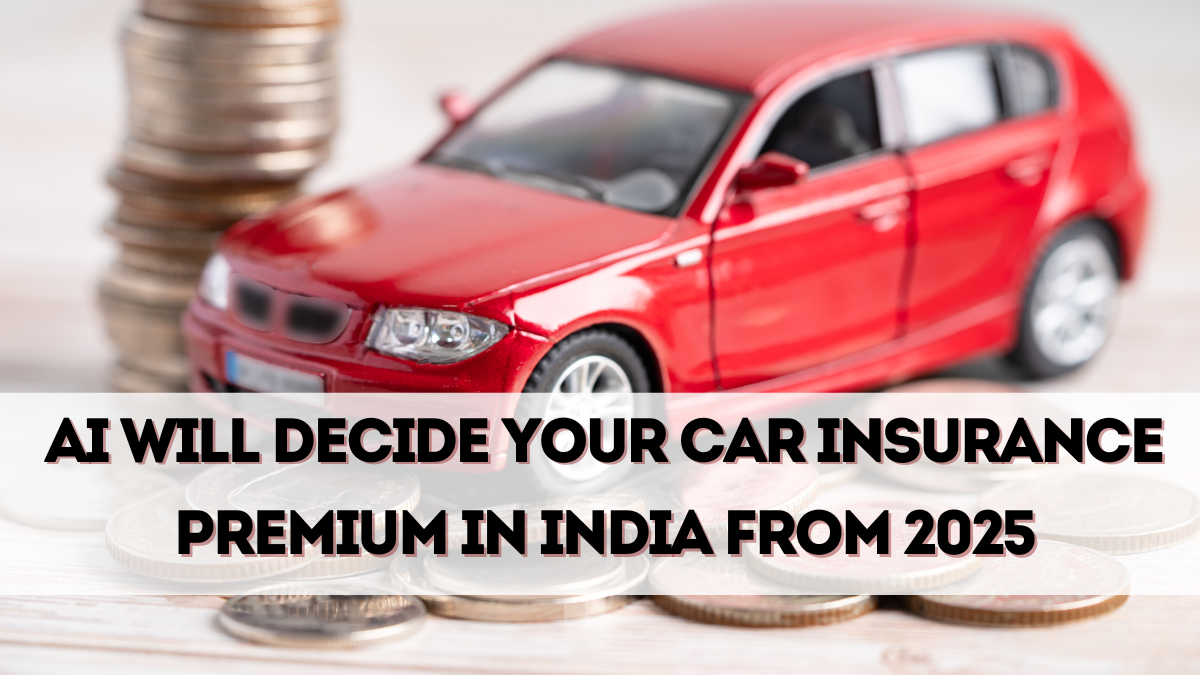The Indian car insurance industry is entering a new digital phase in 2025. Insurers are now using artificial intelligence (AI) and telematics to determine premiums. This means that your driving style, speed, and habits will directly influence how much you pay.
The shift marks a move away from fixed premium models toward personalized pricing, designed to reward safe drivers and reduce fraud.

How AI is Changing Car Insurance
Traditionally, premiums were calculated based on fixed factors like car age, location, and claim history. This system ignored real-time driving behavior.
With AI, insurers can now analyze telematics data collected from GPS, sensors, and onboard devices. AI then uses this data to create a driver risk profile, which becomes the basis for premium calculation.
For example, drivers who brake harshly, overspeed frequently, or drive late at night may pay higher premiums. In contrast, cautious drivers will receive discounts.
Telematics and Real-Time Monitoring
At the center of this change is telematics technology. Vehicles are now fitted with IoT devices or connected car systems that send data directly to insurers.
The data includes:
-
Average driving speed.
-
Frequency of sudden braking.
-
Distance traveled daily.
-
Time and location of trips.
AI algorithms process this information to calculate risk more accurately than traditional methods. This ensures premiums are fairer and more transparent.
Benefits for Policyholders
For drivers, this AI-driven approach has several benefits.
-
Lower Costs for Safe Drivers: Careful motorists can save up to 20–30% on premiums.
-
Fair Pricing: No more paying the same as high-risk drivers.
-
Incentives for Good Driving: Safe habits directly translate into financial rewards.
-
Faster Claims: AI can process accident data quickly, leading to faster settlements.
This system encourages drivers to adopt better road behavior, contributing to overall safety.
Benefits for Insurers
Insurance companies also gain from this digital shift.
-
Reduced Fraud: Real-time data helps detect false claims.
-
Accurate Risk Assessment: AI minimizes guesswork in pricing policies.
-
Customer Retention: Personalized plans improve customer satisfaction.
-
Cost Efficiency: Automated systems reduce manual paperwork and errors.
By 2025, most large insurers in India have adopted at least some form of AI-based monitoring.
Adoption in India’s Market
Major players like ICICI Lombard, HDFC Ergo, and Bajaj Allianz have already introduced telematics-based car insurance products.
These companies are targeting tech-savvy urban drivers who are comfortable sharing driving data. The government is also encouraging digital insurance as part of the Digital India initiative.
Industry experts predict that by the end of 2025, nearly 30% of car insurance policies in India will be linked to AI and telematics.
Privacy and Data Concerns
While the system offers many benefits, it also raises concerns.
-
Data Privacy: Drivers worry about constant surveillance.
-
Usage of Information: Some fear insurers may misuse travel history or sell data.
-
Transparency: Customers want clarity on how much weight each factor carries.
To address these issues, the Insurance Regulatory and Development Authority of India (IRDAI) is drafting guidelines to ensure data protection and ethical use of AI.
How It Affects Premium Calculations
Under AI-based insurance, the premium is influenced by multiple factors:
-
Driving Score: A score assigned based on speed, braking, and cornering.
-
Annual Mileage: The more you drive, the higher the risk.
-
Time of Driving: Frequent night driving increases premiums.
-
Location: Driving in congested or accident-prone zones raises costs.
This creates a highly personalized premium system, unlike the one-size-fits-all approach of the past.
Impact on Indian Motorists
For everyday drivers, this shift means premiums will finally reflect real behavior. Safe drivers stand to save money, while risky ones may face higher costs.
Taxi operators, fleet owners, and young drivers will be most impacted. Fleets may adopt driver training programs to lower premiums, while youngsters will need to prove safe habits to avoid high charges.
Overall, it could lead to a cultural change in road discipline, as financial savings encourage safer driving.
The Road Ahead for AI in Car Insurance
The adoption of AI in car insurance is still in its early stages. Over the next few years, insurers will likely combine AI with machine learning and predictive analytics.
This could allow for dynamic premium adjustments, where rates change monthly based on performance. Integration with UPI payments and mobile apps will also make insurance more interactive.
By 2030, India may have a fully AI-driven insurance market, with real-time adjustments and complete automation. For now, 2025 marks the start of this transformation.
FAQs
How is AI used in car insurance in India?
AI analyzes telematics data such as speed, braking, and mileage to create driver risk profiles and calculate premiums.
Will safe drivers benefit from AI-based premiums?
Yes. Safe drivers can receive discounts of up to 30% under telematics-linked insurance policies.
What are the risks of AI-based insurance?
The main risks involve privacy concerns, data misuse, and lack of transparency in premium calculation.
Which insurers in India offer AI-based policies?
Companies like ICICI Lombard, HDFC Ergo, and Bajaj Allianz already provide telematics-based car insurance.
Will AI make claims processing faster?
Yes. AI can analyze accident data instantly, leading to quicker approvals and settlements.
Click here to know more.
